Saad Hariri: Lebanon return from Saudi Arabia 'within days'
- Published
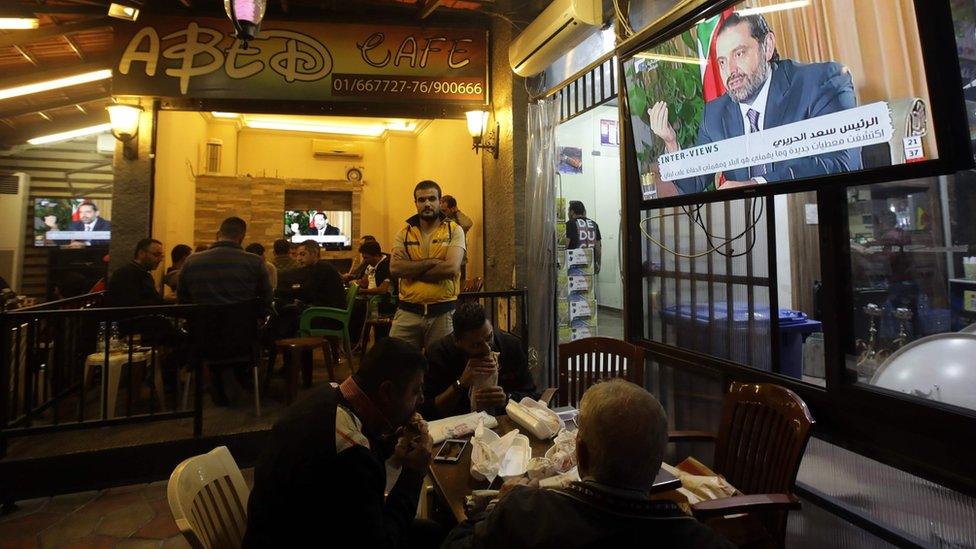
Hariri's resignation has sent shockwaves through Lebanon and the region
Lebanon's Prime Minister Saad Hariri says he will return home "in days" to formally submit his resignation.
Mr Hariri spoke to Future TV from Riyadh, his first public remarks since he announced he was stepping down last week.
His cabinet allies say he is being held captive, but Mr Hariri denied this.
He has blamed the Iran-backed Hezbollah movement for his resignation, citing concerns over his and his family's safety.
The US and UK have warned other countries not to use Lebanon for proxy conflicts.
Mr Hariri, a Sunni leader and businessman, was nominated to form Lebanon's government in November 2016.
"I have resigned. I am going to Lebanon very soon and I will resign in the constitutional manner," he said in the TV interview.
Under Lebanese law the prime minister has to submit his resignation to the president, who must accept it for it to take effect.
However, Mr Hariri also held out the prospect that he might reconsider resigning if Hezbollah stopped intervening in neighbouring countries.
"If we want to go back on the resignation, we have to return to the policy of distancing ourselves" from regional conflicts," he said, according to the Associated Press, external.
"I am not against Hezbollah as a party, I have a problem with Hezbollah destroying the country," he said.
The main problem for the region, he said, was "Iran interfering in Arab states".
'Wake-up call'
A sombre Mr Hariri recognised that he did not resign in the "usual way" but said he wanted to give his country a "positive shock".
"My resignation came as a wake-up call for Lebanon," he said.
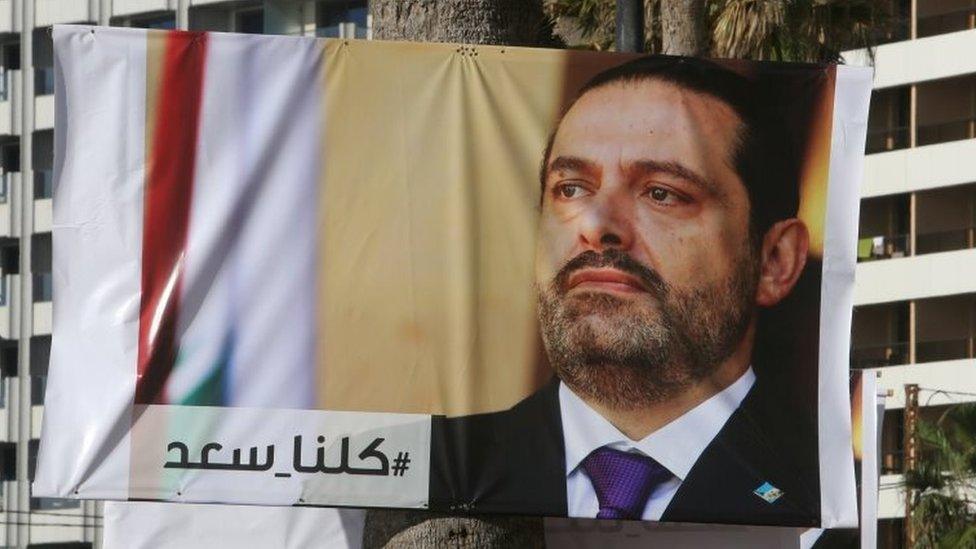
Posters of Mr Hariri have appeared across Beirut. This one says: "We are all Saad"
Iran and Hezbollah have accused Saudi Arabia of holding Mr Hariri hostage.
But Mr Hariri insisted that he was free to travel as he pleased in the country. "I am free here. If I want to travel tomorrow, I will," he said.
Observers noted the journalist who interviewed Mr Hariri made an effort to demonstrate that the event was live, rather than pre-recorded, though there were several moments which raised suspicions about the conditions under which the interview was held, , externalthe Associated Press reported.
- Published11 November 2017
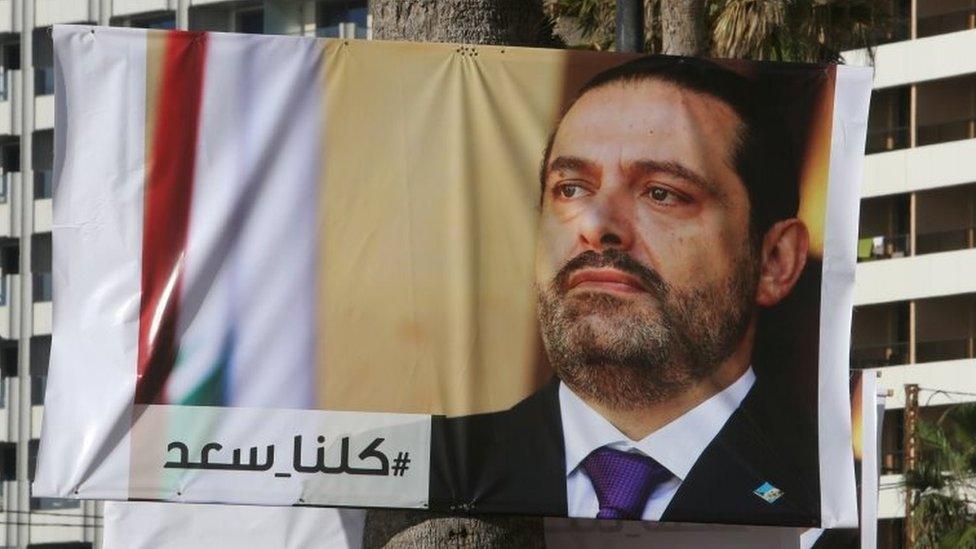
- Published10 November 2017
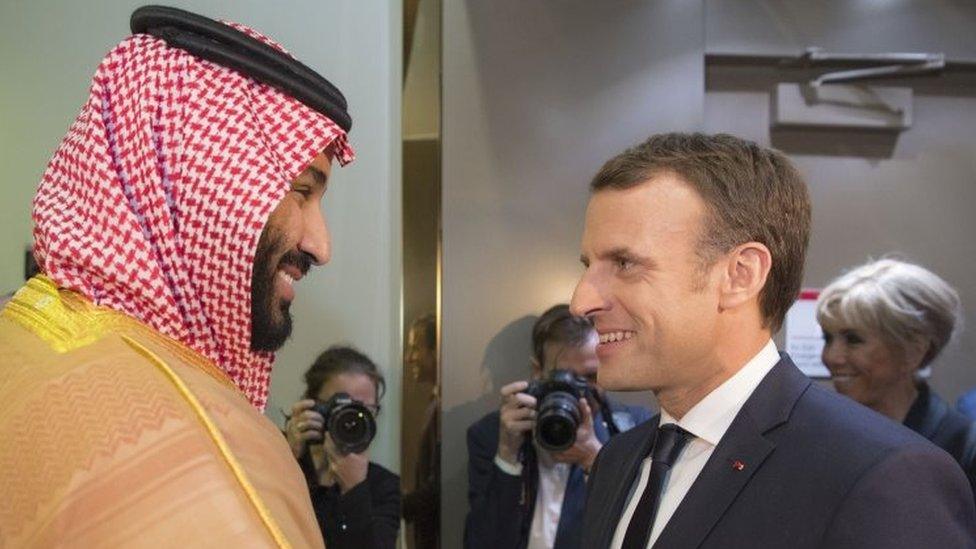
- Published10 November 2017
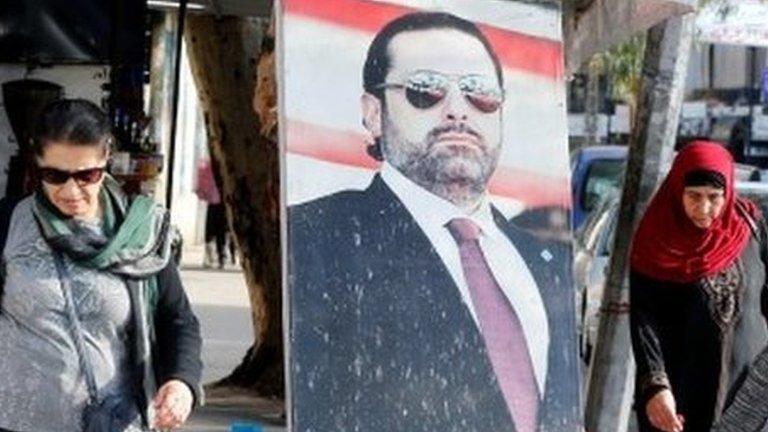
- Published5 November 2017
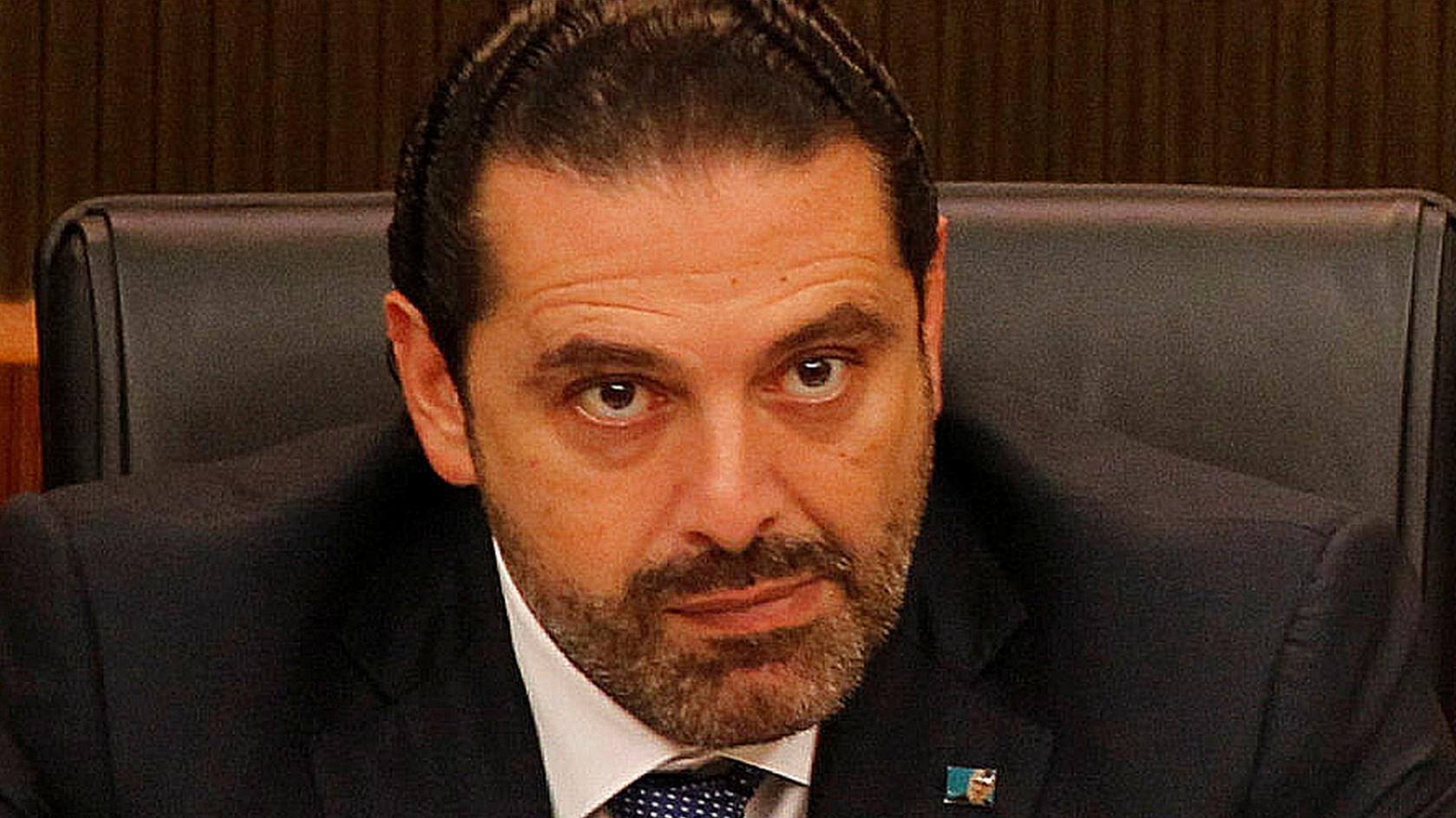
- Published7 November 2017
